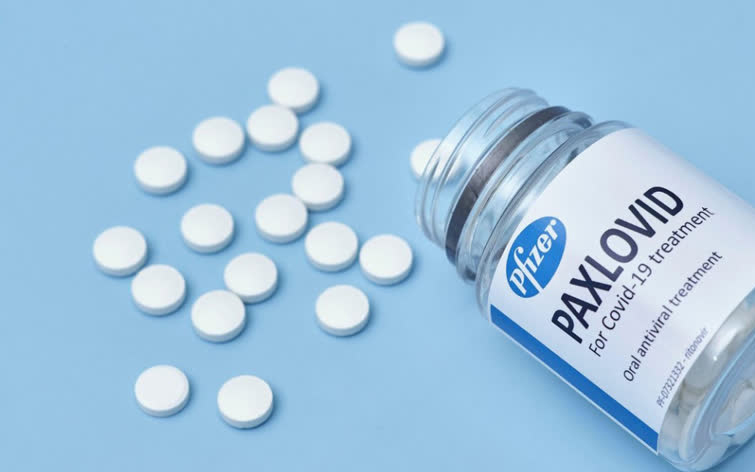People with a high risk of severe illness from COVID-19 are eligible for treatment with COVID-19 antiviral medicines. These medicines reduce the amount of virus in your body, so you do not get as sick and you are less likely to go to hospital.
You can get free antiviral medicines if you:
- have COVID-19 and symptoms or you are a Household Contact and have symptoms, and
- became sick within the last 5 days, and
- are eligible for the medicine.
Eligible people include:
- Māori or Pacific people aged 50 or over
- everyone aged 65 or over
- anyone aged 50 or over with fewer than 2 COVID-19 vaccinations
- anyone with a severely weakened immune system
- anyone with Down syndrome
- anyone with sickle cell disease
- anyone who has previously been in critical high dependency hospital care from COVID-19
- anyone with 3 or more high-risk medical conditions.

High-risk medical conditions include:
- chronic lung or airways disease
- serious heart conditions such as congestive heart failure, coronary artery disease, rheumatic heart disease, and congenital heart disease
- hypertension
- chronic neurological or neuromuscular disease
- diabetes
- chronic kidney disease
- severe liver disease such as cirrhosis
- severe haematological disorders
- severe mental illness such as schizophrenia, major depressive disorder, bipolar or schizoaffective disorder
- active cancer
- morbid obesity (BMI greater than 35).
COVID-19 antiviral medicines are available to treat eligible people with COVID-19 at home.
You must start taking COVID-19 medicines within the first 5 days of getting symptoms.
When taken early in your COVID-19 illness, antivirals can help you stay out of hospital.
These medicines are free for eligible people within 5 days of their symptoms starting.
If you test positive for COVID-19 or are a Household Contact
Talk to your doctor or nurse by phone to see if getting a prescription is right for you. They will help you work out if you are eligible for COVID-19 medicine. It will depend on several factors, including your age, ethnicity, other health conditions and vaccination status.
Many pharmacists will be able to supply COVID-19 antivirals without a prescription if you test positive or are a Household Contact. The pharmacist will check your eligibility.
Talk to your pharmacist or a registered nurse either immediately after you test positive or develop symptoms to see if the medicines are right for you.
If you are at risk of serious illness but do not have COVID-19 symptoms
If you are at risk of becoming very unwell with COVID-19 you may be able to get a prescription before you get COVID-19.
This means the pharmacist will have the prescription ready to use if you become unwell.
If you test positive, you can then arrange to have the medicine delivered by your friends, whānau or the pharmacy.
Your doctor, nurse or pharmacist will confirm that it is still safe for you to take COVID-19 medicines.
You will not be able to get the medicine until you test positive for COVID-19.
Talk to your doctor or nurse to see if getting a prescription before you get unwell is right for you.
Find a pharmacy
Pharmacies supplying antivirals can be found on Healthpoint.
You will need a prescription at these pharmacies:
Pharmacies where you need a prescription | Healthpoint
You will not need a prescription at these pharmacies:
Pharmacies where you do not need a prescription | Healthpoint
If you have COVID-19 you must self-isolate for 7 days and cannot leave your home.
If you are eligible for medicines, arrange to have them delivered by friends, whānau or by other means. Some pharmacies can deliver the medicine.
COVID-19 antiviral medicines are available to treat early COVID-19 at home. These include:
- ritonavir with nirmatrelvir (branded as Paxlovid)
- molnupiravir (branded as Lagevrio).
They are oral medicines provided to people who are at higher risk of severe illness from COVID-19. When taken within the first 5 days of your COVID-19 illness they can help you stay out of hospital.
Some other medicines are available to treat COVID-19 but are only given in hospital.
Pharmac, the agency which decides what medicines to publicly fund in New Zealand, has more information on its website.
If you are severely immunocompromised you may be eligible for Evusheld.
Evusheld is a preventative medicine and can help reduce severe illness and hospitalisation from COVID-19.
It is available for severely immunocompromised people 12 years old and over. You can get the 2 injections of Evusheld before you get COVID-19, or at least 2 weeks after your recovery.
Talk to your doctor or health professional about whether this medicine is right for you.